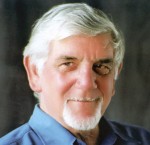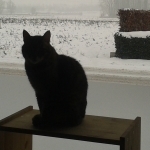My response from EBAY
just search for "medical devices" on ebay.
http://tinyurl.com/3b77n3
Maybe socknister could have saved a bunch of money!
http://tinyurl.com/3b77n3
Maybe socknister could have saved a bunch of money!
_________________
| Mask | ||||
 | ||||
| Additional Comments: Aussie Heated hose for rain out/PapCap Headgear and chin strap | ||||
Sleepyred
Love these products:
Pad a Cheeks
http://www.padacheek.com/index.html
Pur-Sleep System
http://www.pur-sleep.com/
Love these products:
Pad a Cheeks
http://www.padacheek.com/index.html
Pur-Sleep System
http://www.pur-sleep.com/
-
girlsaylor
- Posts: 140
- Joined: Tue Dec 19, 2006 12:00 pm
May I suggest
Then may I suggest that the sleep physicians, dme suppliers, and medical docs start providing services for those OSA-related bills submitted to insurance companies and medicare? (acid tongue?!) Just might have to do a little work for the bucks!
girlsaylor
girlsaylor
- Aussiegrouch
- Posts: 53
- Joined: Mon May 21, 2007 12:33 pm
- Location: Kincumber. NSW. Australia
The Ebay listing in my previous post was definately there 5 hours ago.
It looks like Ebay have pulled it.
Graham
It looks like Ebay have pulled it.
Graham
_________________
| Mask: Mirage Quattro™ Full Face CPAP Mask with Headgear |
| Additional Comments: Encore Pro 1.8, Choice MD300W1 Wrist Oximeter + software, Mir Spirometry System + software ,APAP @ 14-18 cmH2O. AHI 6mths average 0.3 |
"The best cure for hypochondria is to forget about your body and get interested in somebody else's.", [Robert Byrne]
To GUEST:
CPAP masks are NOT by default prescription. It just depends on how the manufacturer classifisied it with the FDA.
For example, the Purtian Bennett ones are listed as Oxygen or Anesthestethic masks, which are Class I and also exempt from FDA clearance, therefore requiring no prescription.
Do your own research first before commenting on these boards.
And stop bothering us with useless posts.
CPAP masks are NOT by default prescription. It just depends on how the manufacturer classifisied it with the FDA.
For example, the Purtian Bennett ones are listed as Oxygen or Anesthestethic masks, which are Class I and also exempt from FDA clearance, therefore requiring no prescription.
Do your own research first before commenting on these boards.
And stop bothering us with useless posts.
- billbolton
- Posts: 2264
- Joined: Wed Jun 07, 2006 7:46 pm
- Location: Sydney, Australia
My experience with regulatory applications forms is that just because a form has an option on it does not mean that there is not a regulation, instruction (or similar) elsewhere indicating which way the form must be completed in respect of certain entry fields for specific classes of devices.echo wrote:CPAP masks are NOT by default prescription. It just depends on how the manufacturer classifisied it with the FDA.
Similarly, just because different suppliers have completed the form in a different way does not mean that there is not a default which should have been applied.
The FDA regulations appear to be quite complex from what I can see of them, and would need careful analysis to understand all the parameters that could well apply to the theraputic class of CPAP apparatus.
Cheers,
Bill
Hi Bill,
You're completely right of course, and I jumped the gun in making that bold conclusion.
What I should have said is that different masks from different suppliers have been coded differently according to the search I did on the FDA site, some as anesthesia/oxygen masks and others as part of the CPAP machine - but I of course cannot say why that is, but that is what the FDA has decided.
As for the default classification of a certain apparatus, there is no special CPAP mask classification, not within the CPAP classification nor outwith that classification.
Some more info I found on the "Draft Reviewer Guidance for Ventilators", which is referred to on many CPAP 510(K) applications, mentions that special consideration may have to be taken for masks that
- are multi-patient use (therefore carry some risk of disease transmission and should therefore be further regulated)
- distinction between full face / nasal interface (e.g. can come in contact with mucous membranes)
- contain individually molded features
- masks that allow direct oxygen input
http://www.fda.gov/cdrh/ode/500.pdf
I have noticed that the Resmed and Respironics 510(K) mask applications include references to multi-user possibilities - so maybe that's the trick they use to make their masks further regulated!
... which makes it sound like there is no real "default" when it comes to these classifications - probably they look at a lot of different factors....
and as you say it's quite complex so I doubt we will be able to come to any sort of concrete consensus. Still, makes you wonder....
You're completely right of course, and I jumped the gun in making that bold conclusion.
What I should have said is that different masks from different suppliers have been coded differently according to the search I did on the FDA site, some as anesthesia/oxygen masks and others as part of the CPAP machine - but I of course cannot say why that is, but that is what the FDA has decided.
As for the default classification of a certain apparatus, there is no special CPAP mask classification, not within the CPAP classification nor outwith that classification.
Some more info I found on the "Draft Reviewer Guidance for Ventilators", which is referred to on many CPAP 510(K) applications, mentions that special consideration may have to be taken for masks that
- are multi-patient use (therefore carry some risk of disease transmission and should therefore be further regulated)
- distinction between full face / nasal interface (e.g. can come in contact with mucous membranes)
- contain individually molded features
- masks that allow direct oxygen input
http://www.fda.gov/cdrh/ode/500.pdf
I have noticed that the Resmed and Respironics 510(K) mask applications include references to multi-user possibilities - so maybe that's the trick they use to make their masks further regulated!
... which makes it sound like there is no real "default" when it comes to these classifications - probably they look at a lot of different factors....
and as you say it's quite complex so I doubt we will be able to come to any sort of concrete consensus. Still, makes you wonder....
- billbolton
- Posts: 2264
- Joined: Wed Jun 07, 2006 7:46 pm
- Location: Sydney, Australia
CPAP device are not "ventilators". Ventilators are devices which generally assist with normal breathing (that is NOT sleep disordered breathing) for individuals. Ventillation is generally associated with heart/lung disorders, comas or similar sorts of respiritory problems.echo wrote:Some more info I found on the "Draft Reviewer Guidance for Ventilators",
CPAP machines as a class of devices are related to sleep disorder conditions not to respiritory conditions.
This may seem like splitting hairs, but it has a wide range of ramifications in both treatment and regulatory senses. As soon as any additional Oxygen feed is introduced into the use of a CPAP system to treat any general respiritory problem, the usage rules change and warnings and other associated messages become much more stringent!
Cheers,
Bill
Bill
Yes I completely realize that but it applies to the CPAPs as well, honest.
(text below editing several times)
Included in these categories are ventilators previously reviewed as non-continuous ventilators, but for
which continuous use indications are prevalent. The classification for non-continuous ventilators (21 CFR
868.5905, 73 BZD) will include those positive pressure systems intended only for the treatment of adult
obstructive sleep apnea.
<snip>
6.0 SPECIAL REOUIREMENTS & TESTING FOR VENTILATORS WITH NON-ACTIVE
EXHALATION VALVE CONTROL
The devices discussed in this section are ventilators which do not have actively controlled exhalation valves or
mechanisms functionally equivalent to actively controlled exhalation valves. The devices are indicated for
continuous positive airway pressure (CPAP) and for positive pressure ventilation of adult patients to treat
obstructive sleep apnea, respiratory insufficiency, and acute respiratory failure.
<snip>
It is recognized that the devices addressed in this section cannot perform many of the functions of an ICU
ventilator. Therefore, separate product codes - MNS (ventilator, passive exhaust port, non-critical care), and
MNT (ventilator, passive exhaust port, critical care) have been established for these types of ventilators.
Ventilators classified under MNS may be indicated for treatment of adults with obstructive sleep apnea, and
ventilatory support during chronic or acute respiratory insufficiency.
...so again being the FDA, the rules are complex. However manufacturers can site the provisions of this document for CPAP machines (and therefore the masks), as some CPAPs could fall within the guidelines of this text as well. At least that's how I interpret it.
Anyway I'm dropping this subject. It's getting too complicated, and there is no specific documentation I can find for CPAP (classification 868.5905). If anyone can find it, please let me know!
Yes I completely realize that but it applies to the CPAPs as well, honest.
(text below editing several times)
Included in these categories are ventilators previously reviewed as non-continuous ventilators, but for
which continuous use indications are prevalent. The classification for non-continuous ventilators (21 CFR
868.5905, 73 BZD) will include those positive pressure systems intended only for the treatment of adult
obstructive sleep apnea.
<snip>
6.0 SPECIAL REOUIREMENTS & TESTING FOR VENTILATORS WITH NON-ACTIVE
EXHALATION VALVE CONTROL
The devices discussed in this section are ventilators which do not have actively controlled exhalation valves or
mechanisms functionally equivalent to actively controlled exhalation valves. The devices are indicated for
continuous positive airway pressure (CPAP) and for positive pressure ventilation of adult patients to treat
obstructive sleep apnea, respiratory insufficiency, and acute respiratory failure.
<snip>
It is recognized that the devices addressed in this section cannot perform many of the functions of an ICU
ventilator. Therefore, separate product codes - MNS (ventilator, passive exhaust port, non-critical care), and
MNT (ventilator, passive exhaust port, critical care) have been established for these types of ventilators.
Ventilators classified under MNS may be indicated for treatment of adults with obstructive sleep apnea, and
ventilatory support during chronic or acute respiratory insufficiency.
...so again being the FDA, the rules are complex. However manufacturers can site the provisions of this document for CPAP machines (and therefore the masks), as some CPAPs could fall within the guidelines of this text as well. At least that's how I interpret it.
Anyway I'm dropping this subject. It's getting too complicated, and there is no specific documentation I can find for CPAP (classification 868.5905). If anyone can find it, please let me know!
Not to split hairs but the CPAP guidelines and classifications at the FDA all fall into the anesthesiolgy category, which is Respiratory medicine. Also CPAPs are classified as non-continuous ventilators. Furthermore, the reviewers at the FDA for the 510(k)'s are clinicians from the Dept of Anesthesiology.billbolton wrote:CPAP machines as a class of devices are related to sleep disorder conditions not to respiritory conditions.
I'm not trying to get into a fight with you, I'm just trying to understand it all myself.













